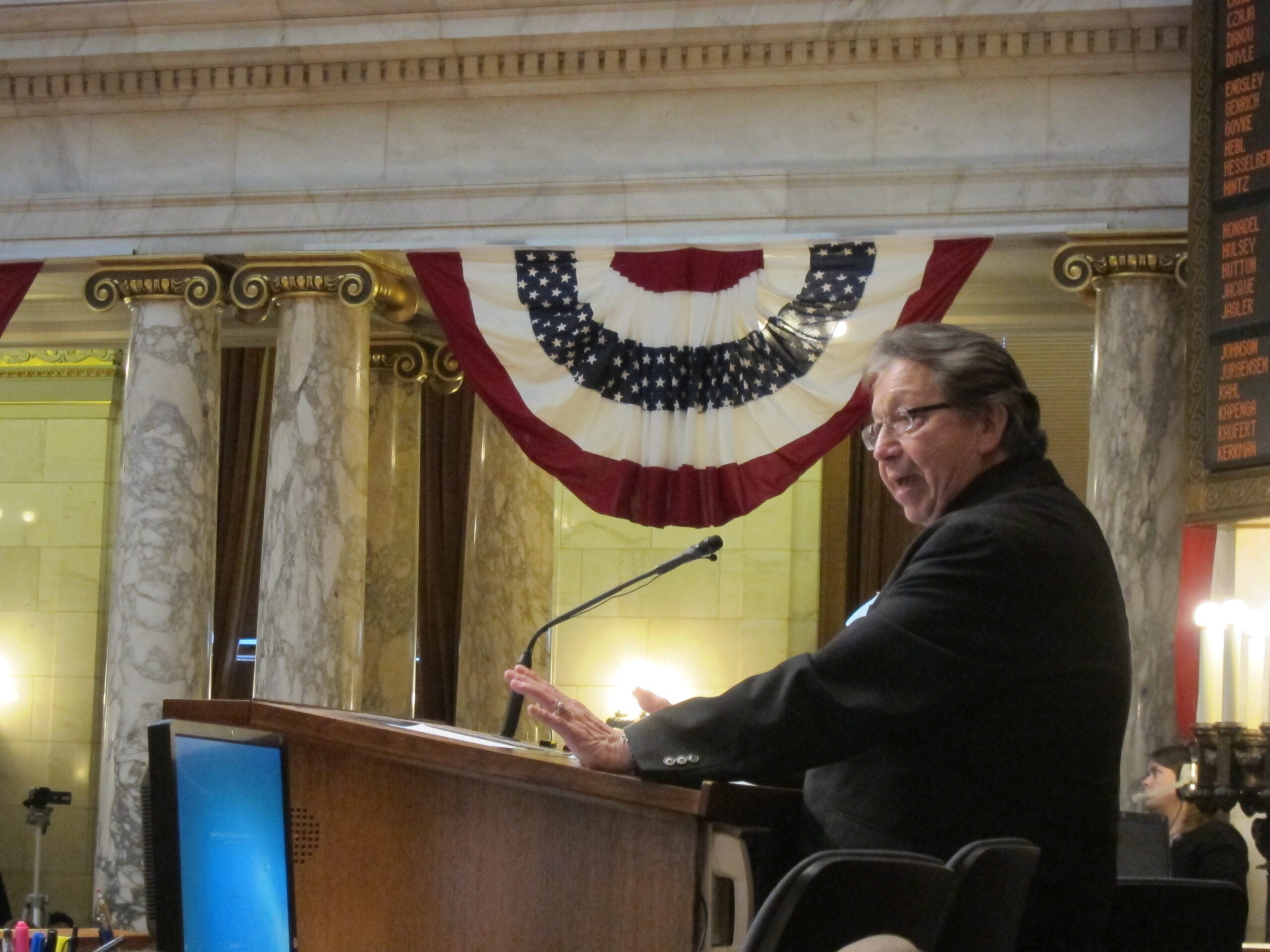Lac Courte Oreilles Chairman Gordon Thayer used Wisconsin’s annual State of the Tribes Address today to blast decisions by the state to deregulate iron mining, telling lawmakers that Native Americans could not be “dismissed as a subgroup of people in Wisconsin.”
Thayer pulled few punches as he told lawmakers that all 11 of Wisconsin’s tribes oppose the state’s new mining law, which is aimed at clearing the way for a massive open pit mine in Iron and Ashland Counties. He said natural resources could not be traded like an asset or commodity: “We cannot cash in our natural resources for corporate profit.”
Thayer said there needed to be more government-to-government consultation with tribes on issues that affect them.
Stay informed on the latest news
Sign up for WPR’s email newsletter.
“So I ask this distinguished body to consider this offer: When it comes time to make a difficult decision on resources and policies that impact us both, that we agree to meet. Sometimes we never agree, but we should never let outsiders make our laws for us.”
The line drew big applause from the audience in the public gallery, but little applause from Republicans. Speaker Pro Tem Bill Kramer actually left the Assembly chamber, telling reporters afterward that the speech was disrespectful.
Thayer also attacked Wisconsin’s Department of Natural Resources (DNR) over its decision to reduce walleye limits for fishermen after Wisconsin’s tribes announced they planned to spear an additional 5,300 fish. Thayer said the Ojibwe’s increase was based on science, and accused the DNR of ulterior motives: “It’s a political ploy — that’s how we feel — to embarrass tribes into harvest of fewer fish.”
Thayer said the DNR’s actions brought him back to the 1980s, when tensions ran high over spearfishing controversies in Northern Wisconsin.
The department issued a statement after the speech that tribes were acting lawfully, but that the department’s responsibility was to the sustainability of the fishery.
Wisconsin Public Radio, © Copyright 2024, Board of Regents of the University of Wisconsin System and Wisconsin Educational Communications Board.






